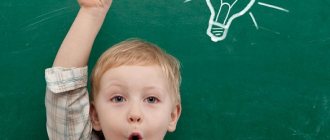What it is
Reflection is an activity aimed at ridding a person of stereotypical and thoughtless reactions. Today the word has become quite worn out. In a world with a developed industry of accessible entertainment, at the same time obsessed with personal growth, efficiency and continuous self-learning, there is nowhere without reflection.
At gaming trainings, educational courses, psychological immersions, and even frankly charlatan gatherings like “Pump up your emotional intelligence and pelvic muscles,” a lot of time is devoted to her.
Each science interprets the subject that interests us in its own way. For example, within the framework of a philosophical approach, reflection is usually understood as reasoning about the original plan of existence, the foundations of human culture, the search for God and other lofty matters. In psychology, the term is associated with the analysis of feelings, mental states and various nervous impulses. In pedagogy, reflection is an obligatory part of the educational process, the moment when you need to check the box indicating where you are on the path. “Well, guys, today we studied an isosceles triangle” - Marya Ivanovna’s attempt to engage in reflection, to pay attention to what happened: this morning you didn’t have the slightest idea about the outlandish figures, but now you know everything about them!
American philosopher and educator John Dewey put it this way: “We do not learn from experience... we learn from thinking about experience.”
Indeed, any experience can be learning if we use reflection correctly. Let's say the children played hide and seek. It seems they have not become more educated. But let them have competent teachers and psychologists - and suddenly it turns out that the guys have learned to navigate the terrain; dealt with the instinctive “freeze-flight” reactions; found the shortest trajectory between two objects; developed an effective behavioral strategy in a stressful situation; understood how to count a minute without a clock, etc.
Reflection has a practical meaning and is interesting as a way of looking at yourself: how does experience shape me? Am I developing or deteriorating? what am I feeling right now? Why did I cry and run away when I heard the word “goose”? It allows us to understand how our quirks and beliefs influence the way we behave and make decisions. And this is not critical thinking at all. The latter helps to get to the goal and overcome difficulties, to see inconsistencies in the external world, and reflection is thinking about internal experience. This ability is formed in us, according to scientists, no earlier than 9–10 years.
Instead of impulsively waving your hand: “No, I’ll never climb that tree!” - a person begins to think: “Maybe I’m still capable? What am I missing? What if you try to move the bench? But I can easily jump onto the fence...”
The reality around us is very dynamic and is becoming even faster every day. And planes, and information, and ourselves - everything here is now rushing at great speed. In addition, other universes, virtual ones, appeared.
How to focus on internal monologues if the world around us persistently demands sacrifices in the form of our attention?
Reflection allows the brain to pause right in the middle of chaos, unravel its observations, sort them into interpretative shelves, and generally look at everything in some meaningful way. This is a convenient tool to help you live.
The main thing is to find time and the opportunity to use it.
What is reflection?
Reflection in psychology is the ability to reflect on past events and subject them to detailed analysis. This psychological phenomenon consists in the ability to direct the course of one’s own thoughts, as well as the accumulated knowledge and skills towards already committed actions or planned actions. In simple terms, reflection is the ability to look inside one’s own subconscious, to give an adequate assessment of behavioral patterns, emotional responses to the environment and decision-making mechanisms.
Reflect what does this mean in psychology? This phenomenon represents the ability of an individual to go beyond his own prejudices, carry out deep introspection and draw appropriate conclusions from the analysis. A critical and adequate look at shortcomings and aspects of character that should be subjected to positive metamorphosis is considered an indispensable attribute in modern society. The ability to independently analyze thoughts and actions is a sign of a self-sufficient person.
Socrates owns a statement according to which reflection is considered one of the most important tools of self-knowledge, distinguishing man from the kingdom of animals that do not have the ability to contemplate themselves from the outside. A person who rejects knowledge and refuses self-knowledge cannot count on spiritual growth and comprehensive development. Aristotle and Plato considered thinking and reflection to be attributes characteristic of the higher mind (demiurge). Only divine reason, in the understanding of ancient Greek philosophers, has the ability to bring the thinker and his thoughts into a single whole.
In Neoplatonism (an idealistic movement that originated in late Antiquity), reflection was considered the peacemaking activity of the deity and was viewed from two different points of view. According to the first of them, only the individual himself has the ability to subject his own thoughts and actions to detailed analysis. Another position involves assessing a person’s actions and thoughts from the outside. For people who consider themselves believers, the role of an objective caretaker is performed by the supreme demiurge (God). Members of society tend to grant similar powers to other people occupying a higher position in the social hierarchy.
Philosophical concepts consider reflection as the most essential property of human consciousness. Thus, only that person who has knowledge about the qualities and mechanisms of functioning of his own psyche can be called thinking and sensibly reflecting. In simple terms, a person who is unable to analyze his emotions and state of mind cannot be considered thinking.
By developing skills for reflection, a person acquires unique traits that distinguish him favorably from the rest of the mass of people, realizes his own uniqueness and learns to direct his train of thought in the required direction. The level of reflection varies depending on the age of the subject, his professional skills, life guidelines and views on the surrounding reality. Unlike useless digging in the past and accumulation of grievances, this psychological phenomenon allows you to rethink and improve your existence as a whole.
What is reflection in psychology? An example of this phenomenon can be given as follows: several people watch the same movie. A subject who has the ability to analyze will take away much more useful information from the film he watches and will be able to see analogies in the behavior of the characters in the film with his own life in order to use the information received for good.
Helpful information! Reflection in psychology is considered a practical skill that allows a person to thoughtfully rethink and analyze works of fiction read, films watched, objects of art, and apply the information received for their own self-development.
And does this really improve life?
Researchers from Harvard Business School have found many benefits to regular reflection. It turned out that the habit of asking yourself simple questions at the end of the day positively correlates with a person’s ability to be attentive in communication, with his confidence in his effectiveness and the ability to quickly understand tasks. It also turned out that the productivity of an employee who stared at the cloud outside the window and plunged into the eternal questions: “What have I achieved today, what inspired me?” - higher than that of someone who didn’t have enough time to do soul-searching. Moreover, the study was conducted in call centers, where a person engaged in useful reflection looks suspiciously like a hack who is shirking work.
The hypothesis was confirmed: just 15 minutes of thinking about the lessons learned during the day - and you are already hitting the efficiency of a colleague who does not let go of the phone.
The results of another study show that reflection can be practiced not only in the office, but anywhere. The British, forced to travel to work by train, were asked to use the time on the road for self-analysis: plan the day, talk about yesterday, celebrate achievements - in a word, do not get stuck on your smartphone. Somehow, this exercise allowed them to become more productive, experience less burnout, and be happier overall. Although this is hard to believe, considering that they did not use the phone.
Experts from the University of Texas at Austin are adding fuel to the fire. They wanted to find out how reflection helps students learn information. The students were given tasks in the category of “learn, remember” and after everyone had closed their textbooks, they were asked to simply think about anything. The group of students who devoted these minutes to analyzing their work and structuring their experience (“What did I learn?”) showed higher results in tests compared to those who thought not about their studies, but “about anything,” including classmate's knees.
The role of reflection in psychology and everyday life
Reflection is a separate term in psychology, which was first proposed by Adolf Busemann. According to the famous American scientist, this concept means shifting the emphasis from perception at the level of emotions to the inner world of a person. In 1920, he began a series of experiments to conduct a large-scale empirical study of adolescent self-awareness. Lev Rubenstein, a famous public figure and publicist, argued that reflection is the ability of an individual to sensibly assess his potential and go beyond his own “I”.
The act of reflection is a person’s ability to stop internal dialogue, switching the vector of attention from an automated thought process towards awareness of the degree of spiritual development and internal mental attitude. Having mastered such a tool as reflection, the subject receives a number of opportunities that allow him not only to adequately think and analyze the events of his own life, but also to significantly improve its quality. Thanks to reflective activity, a person acquires the following abilities:
- Get rid of the inferiority complex, indecisiveness and act clearly in difficult situations.
- Objectively evaluate established patterns of behavior and make adjustments to them at your own discretion.
- Transform latent abilities into explicit ones and engage in fruitful and productive self-knowledge.
- Clear your mind of negative thinking patterns, and also get rid of attitudes that prevent you from enjoying life.
The formation of self-awareness is influenced by social status, value judgments of others, as well as self-esteem and the relationship between the idealized “I” and the real one. Self-awareness is one of the main factors determining character and behavior; it allows one to correctly interpret acquired experience and achieve temporal identity and internal consistency. As a person gets older, his level of reflection is usually lower than that of a teenager or young man. This phenomenon is explained by a weakened reaction to internal and external stimuli and a ossified consciousness.
What is reflection in psychology, and how is it different from self-awareness? The term reflection is usually understood as a sober and conscious perception of the contents of one’s own life experience and consciousness. A reflective person can be considered a kind of psychoanalyst, who does not necessarily have specialized education and training. There is a gender theory according to which reflection is more characteristic of women, since they have high sensitivity and a subtle mental makeup.
However, at the moment this assumption remains unproven. It is known that representatives of the “fair sex” with insufficiently developed reflection have a tendency to defend their own interests with aggression and to the detriment of the interests of others. Reflective women, on the contrary, are able to avoid scandals and solve existing difficulties by finding a compromise that suits all parties to the conflict.
Reflective men are characterized by determination and the ability to defend their own interests. Subjects who do not possess such a skill prefer to “swallow” grievances and show adaptability, which in most cases goes against common sense. Thanks to reflection, a person can react to the events that happen to him not in an affective manner, but track and observe his feelings and emotions, which allows him to avoid the repetition of unwanted events in the future. Watch this useful video from psychologist Nikita Valerievich Baturin.
How it works
The “illusion of self-perception” is to blame for the fact that we make a lot of mistakes and often behave stupidly. Princeton University psychologist Emily Pronin uses this term to describe the problem: we see a distorted image of ourselves, but it is not so easy to realize that we have a distorted picture in front of us.
For example, Nikolai is convinced that he is a generous guy, however, when everyone chips in for a gift for a mutual friend, Kolya argues for a long time over two hundred rubles.
It is important that he does not see any contradiction here and is in the grip of illusion. The trick is that we joyfully ignore facts that discredit us, and not only objective data, but also what we dream about are woven into the picture “I am generous, smart and beautiful.” I want to be like that - and I will be! Albeit in your own imagination. For example, every first person considers himself a witty person, and - unfortunately - many undertake to demonstrate this.
In addition to the fact that the participants in Pronin’s experiments were biased towards themselves and exaggerated their merits, they also insisted that their point of view was objective. In the same way, we often hide from ourselves not only fragments of our own portrait, but also our motives.
Okay, we are seriously mistaken in our assessments, but what does reflection have to do with it? The fact is that this process helps bring together conscious goals and unconscious motives, allows you to look back and ask yourself: “Why did I argue for so long over a penny sum? Maybe this is really important to me? And now we are taking a closer look at ourselves, making small adjustments to the portrait and even adjusting the overall course. German scientist Oliver Schultheis from the University of Erlangen-Nuremberg proved that the better our conscious goals and unconscious motives are connected, the happier we are.
For example, if you “internally” do not strive for money and power, then becoming a big boss will not experience real joy, no matter what your mother says.
After analyzing the scientific literature on this problem, Erica Carlson from the University of Toronto found a way to “correct” distortions in thinking. The researcher considers the practice of mindfulness and meditation, cleared of religious overtones, to be such a tool. This is the first point of introspection or, if you like, situational reflection - in the present tense, observation of your thoughts and states. It is important that a person does not identify himself with them (these are just ideas, they come and go against our will) and does not evaluate them (for some reason I want to kill everyone, which is neither good nor bad - I’m just noting a fact). Somewhere here lies the path to self-knowledge, to getting rid of the distorting mirror, the beginning of a psychological approach - to notice what is happening to you.
How to develop reflection in yourself?
Reflection in psychology is a skill that can be trained either independently or improved with the support of a specialist. One of the basic exercises that allows you to develop the reflexivity of nature is to write down on a piece of paper the moments that cause special excitement and are of greatest importance for a particular individual. Once they have been collected in one place within a notebook, album or separate folder, you need to highlight the most important places using markers of different colors.
Such an analysis allows you to get rid of shortcomings and self-doubt, become better and adapt to environmental conditions. To develop reflection abilities, the following practical recommendations will be useful:
- Once a decision has been finally made, its consequences and effectiveness must be analyzed. You need to be able to see alternative ways out of the current situation and learn to anticipate the final results.
- At the end of each day, you need to mentally return to the events that happened and analyze in detail the negative aspects that are subject to further correction.
- It is necessary to analyze your opinion about the people around you, trying to draw objective conclusions. It is important to communicate with different people who share different beliefs and views on life. In this way, you will be able to develop empathy, agility of thinking and the ability to reflect.
Dangerous trap
While everything looks cloudless, it would seem that you should analyze your current experience and adjust your actions. But simple recipes don't work here. For example, researchers studied the condition of men who lost partners due to AIDS. One group simply grieved, while in the other the respondents also engaged in introspection. Yes, after a month they felt more cheerful than those who did not waste time on all this psychology, but after a year, the reflective guys fell into a persistent depressive state, much deeper than that of their opponents.
The authors of another study found that reflective students had suspiciously low levels of mental well-being. (Although, maybe that’s precisely why they do this seemingly therapeutic thing.)
In addition to tireless researchers, ordinary people who consider people who are always delving into themselves, excuse me, whiners, can also spoil the impression.
Well, seriously: what if, in the process of thinking about what I am doing and how my actions affect the world, I come to the conclusion that everything is decay and vanity, I am a pathetic worm, and the game is not worth a candle or a lighter?
Maybe I’m a skeptic in general and I shouldn’t delve into this under any circumstances?
Psychologist Tasha Orich assures: the point is not that reflection is ineffective, but that someone approaches it incorrectly. The question you ask yourself during the research process is critical. The most serious mistake, according to Orich, is asking yourself: “Why?”
Imagine that you are in a gloomy mood - and you decide to find out why you feel so bad. It is likely that you will come to disappointing conclusions: “There are no prospects, the boss is a fool, I’m awkward!”
There are studies that confirm Orich is right. In one of them, after a failed test, students were asked to reflect on what happened. Those who asked the question “Why?” focused on all their problems at once, which they considered the cause of failure, and even after 12 hours they still felt unwell.
But we need reflection not so that we know in which direction to release curses, but in order to move forward, increasing our productivity and not falling into the power of destructive motives.
This means that the chain of reasoning should not lead us to limitations and the thought: “Damn, I have bad genes!” - but, on the contrary, help to see the light.
And it’s better to look forward, not backward. How can I use past experiences to make tomorrow better than yesterday?
Tasha Orich insists: everything will work out if you reformulate the question - not “Why?”, but “What?” What's happening now? What I feel? What does my intuition tell me? What options do I have? What should I do to make it better?
If you have the slightest bit of imagination, you can answer these questions in such a way as to drive yourself into hysterics, but in any case, “What should I do?” works better than "Why?" or “Who is to blame?”
Another danger is fixation, anxious thinking about the process itself: “Am I reflecting correctly? What if the questions are not the same? Well, I’ll try again.” This noose can be suffocating. Experts even have the concept of “destructive reflection,” which is characteristic of overly self-critical people and is accompanied by neuroses: an anxious inner voice does not stop and endlessly analyzes thoughts, sensations and actions. But these are, of course, extremes.
Changing the perspective will help you not to get carried away:
“Okay, I did something strange today. How can this experience help me in the future?
Where to begin
There is no universal approach to reflection; everyone finds the path that suits them. Common, no-frills methods include:
- conversations with yourself while walking, preferably where no one is tugging at your sleeve; - sitting in a secluded place, preferably with eyes closed; - writing practices - keeping diaries and drawing mental maps; - discussion of the experience with a psychologist or mentor - in a word, with someone who is able to formulate the necessary questions.
Experts advise choosing a time to study when you are as honest with yourself as possible. And if you can immediately determine at what time this happens, then you already have a good skill of self-reflection.










